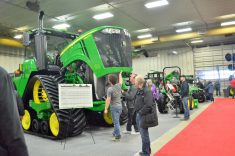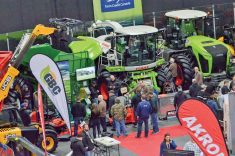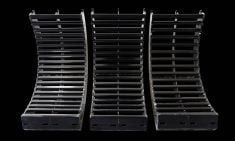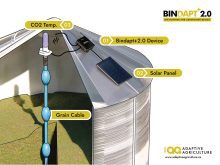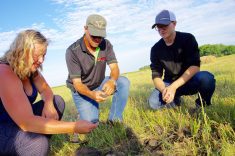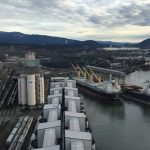It’s not always easy to tease out who owns the data streaming out of a tractor cab’s GPS or other agricultural technology farm platforms, a legal expert said.
If farmers are concerned about that lack of clear ownership, they’re not necessarily wrong, said Bill Oemichen, a lawyer from Minnesota and a member of the Law Society of Alberta.
WHY IT MATTERS: Farmers have been told that digital agriculture and precision farming, driven by data, will make them more efficient, profitable and will be a public relations win environmentally, but there are also questions about who owns the data that farms are increasingly generating, and who benefits.
Read Also
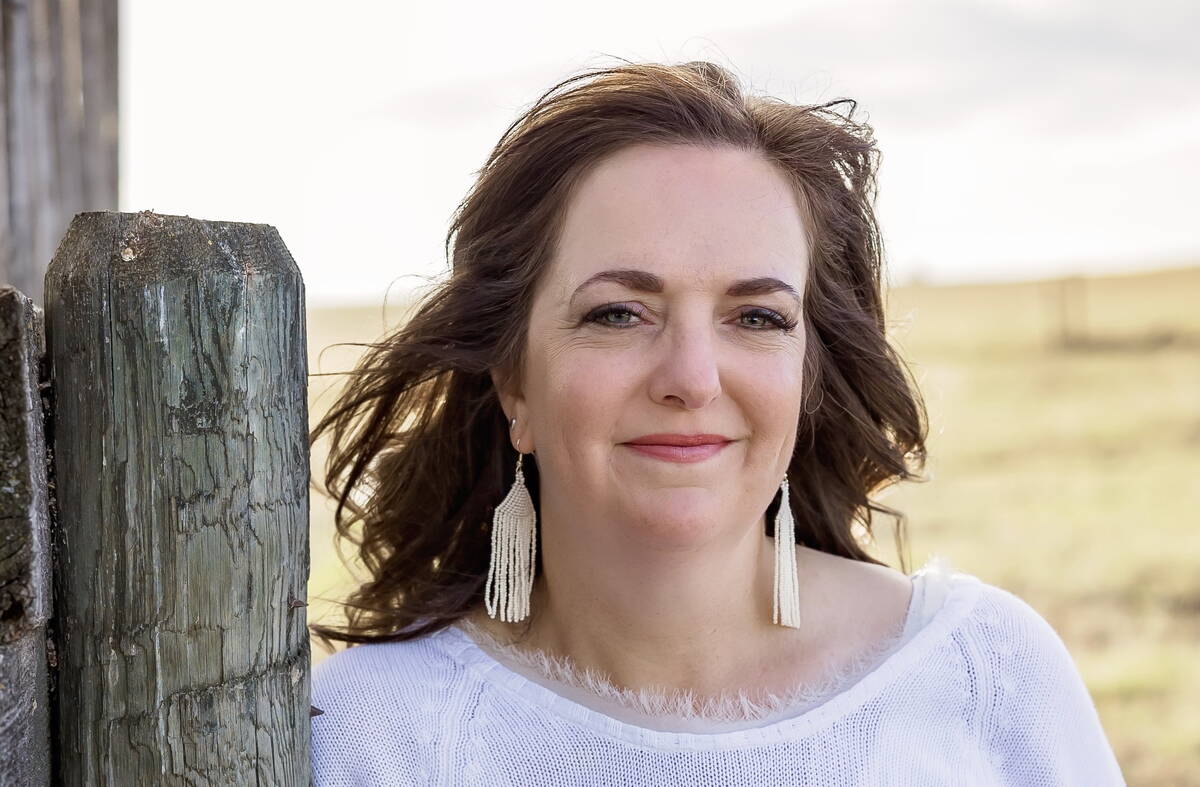
Canadian Cattle Association names Brocklebank CEO
Andrea Brocklebank will take over as chief executive officer of the Canadian Cattle Association effective March 1.
Oemichen is also a research fellow with the Canadian Centre for the Study of Co-operatives at the University of Saskatchewan. That pedigree earned him a spot on the speaker schedule during the Promoting Digitalization in Crop and Beef Production conference, on May 29 in Edmonton, hosted by the Simpson Centre for Food and Agricultural Policy.
Data ownership is among the thorny questions agriculture is wrestling with as the industry digs deeper digital roots, along with topics like cybersecurity, right to repair and ongoing rural connectivity struggles.
Oemichen, using Bayer Crop Science’s Climate FieldView platform as an example, asked farmers in the room if they read their contracts all the way through before indicating their consent. Few raised their hands.
That’s not unusual, he said.
“No one’s reading these agreements. They’re long agreements. They’re written by attorneys (and) only attorneys, in my view, really can understand these agreements.”

He’s not picking on that company in particular, he told the audience. The issue is broader than one provider.
Oemichen highlighted provisions from Bayer’s ownership of farm data agreement for Climate FieldView.
Provision 4.1 tells producers “you own all customer farm data,” but the following provision says Bayer owns any works that they generate, muddying the waters.
Provision 4.3, meanwhile, tells the farmer, “You grant us a non-exclusive license to access, to use, reproduce, display, modify, and prepare derivative works based on your customer farm data.”
“So when you hit consent, you gave Bayer the ability to use all your on-farm data,” said Oemichen.
This doesn’t mean Bayer is singling out a single farmer’s data or failing to anonymize it, the speaker said, but he argued that it leaves room for the company to aggregate the data, use it for machine learning, and combine it with other data sources, including its predictive analytics program — which has substantial value for a number of parties, including hedge funds, he said.
Industry sticks by data usage
Antoine Bernet, country division head with Bayer Crop Science Canada, said the company is not in the data selling business.
“We have not/will not enter into data-selling business models which involve the sale of a farmers (sic) individual’s farm data, including personal data, and we do not use a farmer’s individual farm data or aggregated data sets to speculate in the commodity market other than managing normal business risks associated with our own seed/commodity production operations,” he said in an email.
Bernet also disputed Oemichen’s interpretation of Bayer’s farm data agreement, saying the company “strive(s) for the highest data privacy standards in the industry.”
“This includes our FieldView platform, and we provide a clear data privacy policy for transparency into the type of information we collect, how we handle and use that information, and how customers control access to their customer farm data,” wrote Bernet, pointing out FieldView’s Ag Data Transparent (ADT) certification it received in 2021.
Ag Data Transparent (ADT) is a U.S.-based non-profit that audits companies’ agricultural data contracts. It also documents how technology providers follow a set of core principles when collecting, using, storing and transferring farmers’ data.
He outlined several principles he said the company adheres to regarding agricultural data.
“Farmers own the data they share with us. We do not sell their personal or individual farm data and farmers have the right to ask us to delete their farm data at any time.
“We know our customers care about how their data is protected, stored and used. Bayer is committed to the fair and responsible use of data for all participants, especially farmers, so we can develop better products and services, help growers unlock more yield, and establish more useful digital farming technologies.”
Intellectual property law of little help
Intellectual property law won’t help farmers much when it comes to digital services, Oemichen said.
He cited copyright law as an example, telling the crowd that farm data is not subject to copyright law in either Canada or the United States.
“The only time you can actually copyright is where you manipulate it. You create the algorithm or do some type of statistical analysis, then you have the possibility to copyright it.
“But not too many farmers and ranchers are going to want to spend the money going to an attorney to find out how to copyright this material.”
Always read the contract
Oemichen urged farmers to take the time and read their agreements, no matter how difficult. Data use agreements should tell the producer how the company defines agricultural data, what’s being captured by the platform, how the data is going to be used and what data the farmer gets to keep.
“And if you ever decide to leave that ag input provider, do you get to take your data with you, and do they then delete the data on their end?” he said.
The law doesn’t define agricultural data agreements, he also said.
“The law is usually way behind industry.”
Grassroots solutions can help
Producers may not be able to do much to directly change the data-sharing landscape, but getting agricultural technology companies in line with producer wishes may be the next best thing, said Oemichen.
He also pointed to ADT in a positive light.
“This is a voluntary certification process where they commit to … going through all these areas including disclosure, how they retain data, when they might make data available to you, how you can terminate the contract,” he said.
“They put all this in so it gives you and those companies that are Ag Data Transparent certified some level of comfort that the contract wasn’t a contract of adhesion, which is a contract written totally against you, and so this tries to level the playing field to a degree.”
This story is part of a series of stories exploring issues of digital agriculture adoption on Canadian farms. See also our stories on policy gaps impacting digital agriculture, international policy lessons for Canada on the subject and lack of farmer trust in data sharing.






